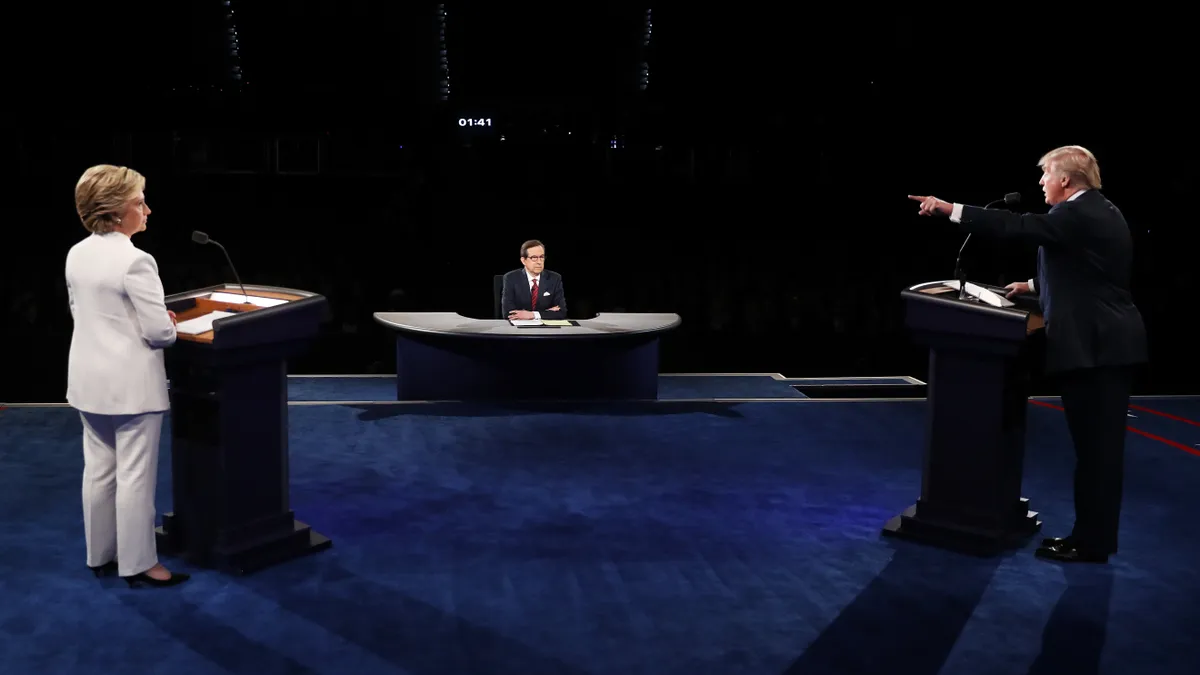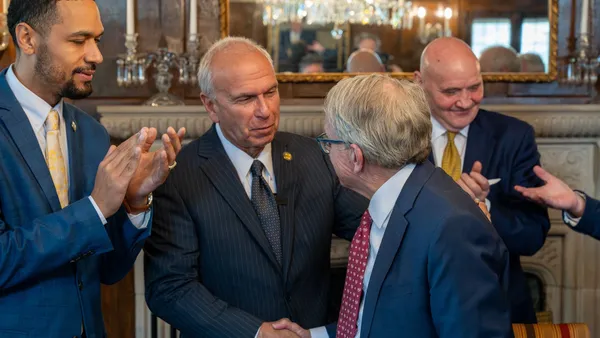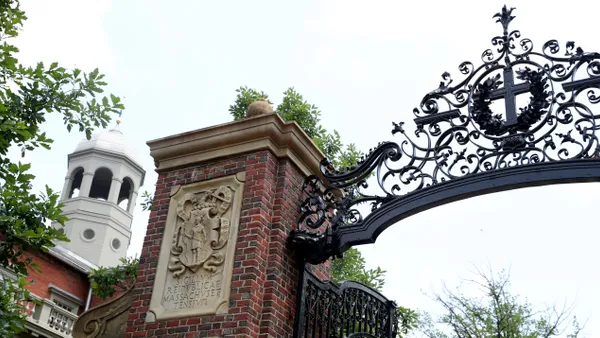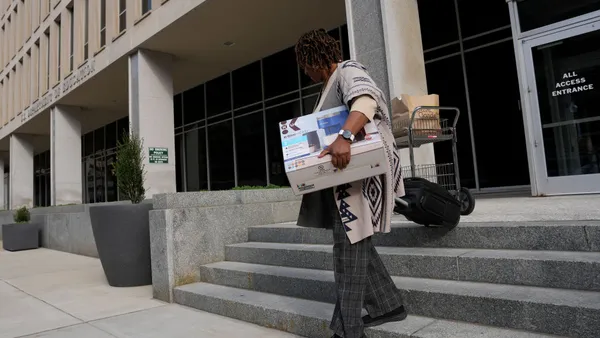Dive Brief:
- Nearly three-quarters of student affairs administrators at U.S. colleges and universities identify as liberal or very liberal, according to a survey by a Sara Lawrence College political science professor who suggests in a New York Times commentary that the bias unduly influences their students.
- Curious about the political leanings of administrators after seeing what he described as "politically lopsided" programming at his college, Samuel Abrams, a moderate-conservative and visiting fellow at the American Enterprise Institute, worked with the National Opinion Research Center at the University of Chicago to survey 900 "student-facing" administrators at public and private two- and four-year colleges.
- He found liberals outnumbered conservatives among administrators 12 to one, with just 6% identifying as conservative. Inside Higher Ed reported Abrams and other analysts said student affairs professionals may be more likely to share their views than professors, who are more aware of being impartial.
Dive Insight:
Abrams' research comes shortly after a Gallup survey found waning confidence in higher education among U.S. adults, with the rift between Republicans and Democrats widening. Gallup suggested the steep decline in confidence among Republicans was from the belief colleges promote a liberal agenda.
A 2017 survey by the Pew Research Center revealed similar sentiment. More than half (58%) of Republicans surveyed said colleges and universities have a negative impact on current events in the U.S., up from 37% who said so two years earlier. About 19% of Democrats viewed colleges unfavorably in 2017.
A separate report from Boston public radio station WGBH and Abt Associates found more positive sentiment toward higher ed, but revealed a partisan divide in perceptions of colleges campuses' ideological tilt. Seventy-seven percent of respondents said campuses lean liberal while 15% said they trend conservative.
Colleges are reckoning with this ideological split. After a free speech issue gained national attention, the University of Nebraska commissioned a Gallup survey of its campus community to determine whether members felt their views were welcome. The survey found students felt the views of liberals and women were most welcome, but not significantly more than those of other groups. Similar shares of conservative and Muslim students said they felt comfortable expressing their views on campus, the Chronicle of Higher Education reported.
That split will also impact how free speech issues are raised and addressed on campus. A study from the Gallup and Knight Foundation earlier this year found most students favor protecting free speech for all viewpoints, though they are mindful of the need for diversity and inclusion. The Georgetown University Free Speech Project, meanwhile, notes there are likely fewer true violations of free speech on campus than have been indicated, and that many of the most publicized incidents center on a few high-profile visiting speakers.













